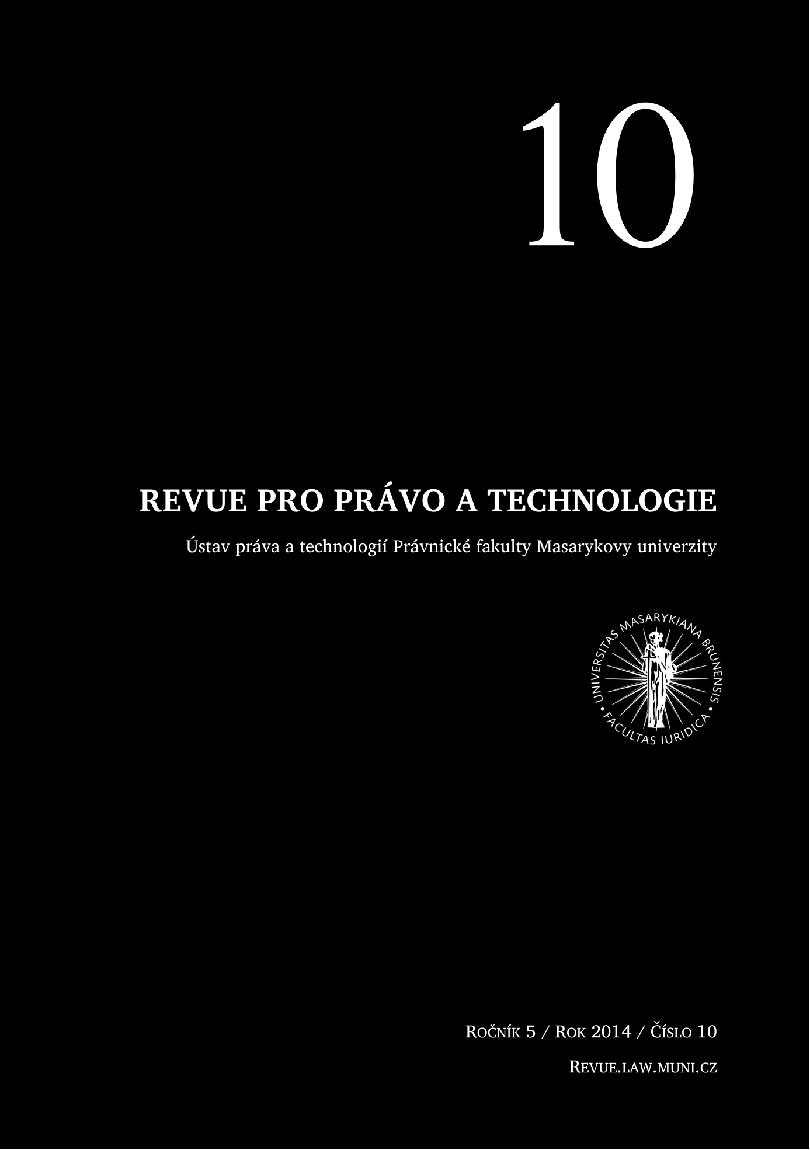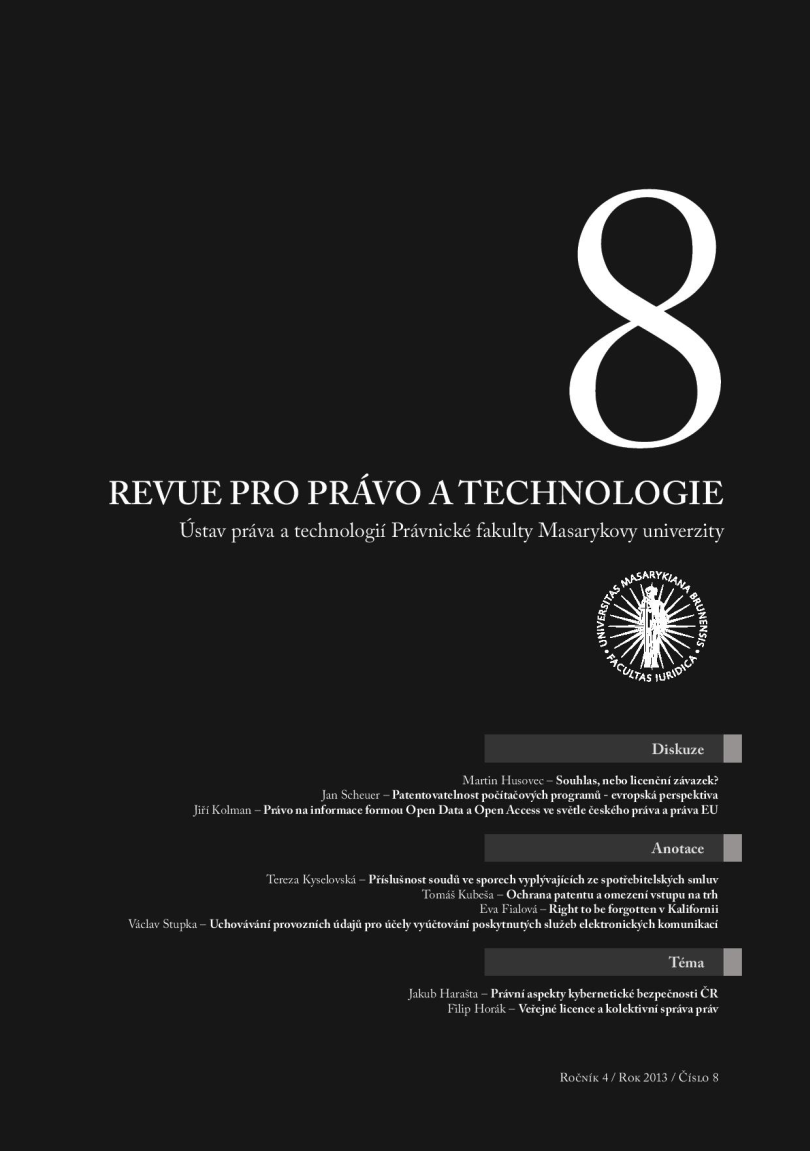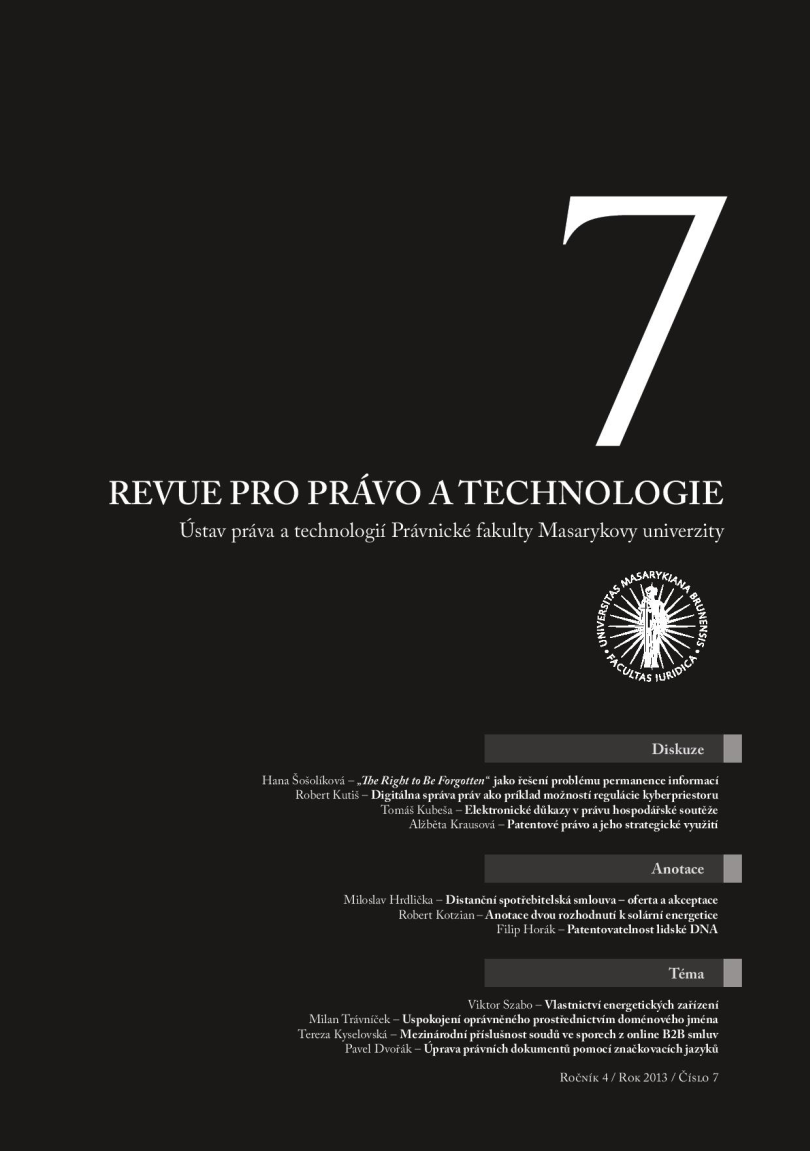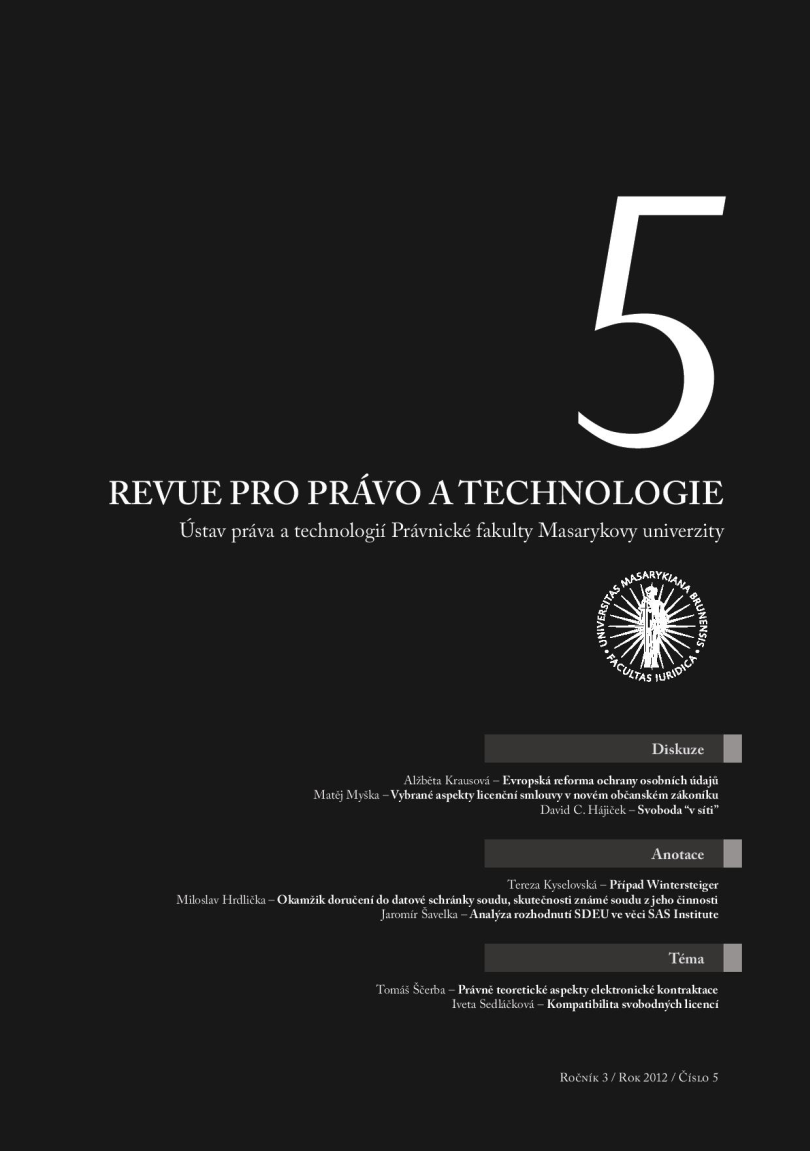
Licence při poskytování software jako služby
This article analyses the provision of software as a service (SaaS) in terms of licensing. A key aspect of this model of providing software based on cloud technology is the fact that it does not include distribution of software to the customer and the customer does not use the software in the sense of copyright. Many SaaS providers therefore use modified open source software to operate their services without having to publish the source code of the performed modifications. The obligation to publish source codes arises only when the modified software is distributed. The possibility of this approach depends on the particular license and the article discussed the issue in terms of the GPL family of licenses, taking into consideration also borderline cases of application. The paradigm shift from product to service at the same time raises the question of whether the customer must have a license to use SaaS. In addition to general answers to the presented questions this paper proposes practical solutions for specific treatment of the outlined problems in the procedures of provision and use of SaaS.
More...


